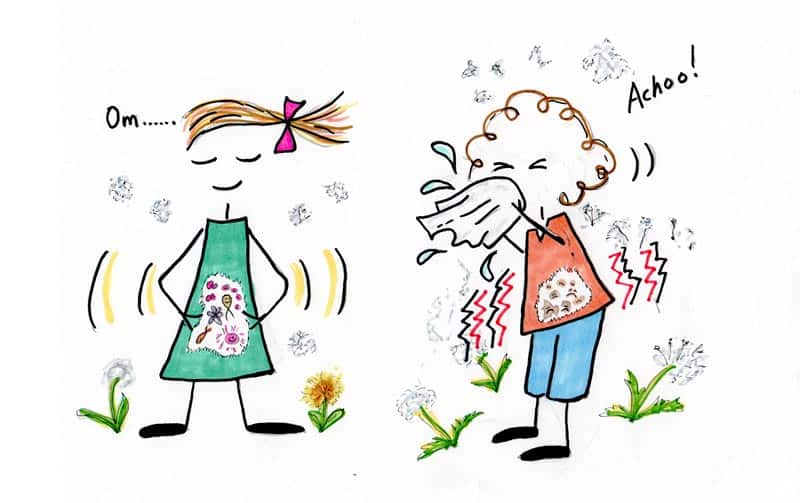Did you realise ……?
The debilitating symptoms of hay fever that plague many people throughout late spring and summer are not an inevitable consequence of the season. It may seem a big ask if you are one of those unfortunate individuals, but I invite you to view these symptoms from a different perspective. How does it feel to think of the body’s response as a gift of information from your own inner wisdom? A little nudge that lets us know that certain aspects of our lifestyle may require a bit of attention? That may seem nonsensical if your reality has been “it’s the pollen that’s bad for you and gives you this copious discharge, itchy eyes and fits of sneezing.” Now, if that was the case surely every one of us would suffer the same fate and clearly that is not true. So, let’s turn 180 degrees and look in a different direction to explore the concept of susceptibility.
There is a symbiotic relationship between humans and plants that provides us with all of our basic needs. As well as being the sole providers of all of our food sources (remember, all animal based products would have consumed plants somewhere along the food chain), we are completely dependent on plants for our daily existence. Plants, sea plants and trees produce all of the oxygen on the planet so already we can see that the mere fact we breath creates a mutually dependant relationship. When we realise that we breath out the carbon dioxide that plants are breathing in we cannot help but see the co-dependence with all the plant life. We are constantly in a cycle of breath, a relationship where we are totally dependant on each other for life. Mother Nature in her wisdom would hardly jeopardise this equilibrium by allowing one half of this relationship to grow sick so we need to keep looking as to how these hay fever symptoms are manifesting in so many of the human population ….
Back to susceptibility… The human respiratory, digestive and immune systems all synchronise to keep us functioning optimally. They are also designed to keep everything in the correct ‘compartments’ within our body. For example, food in the respiratory system would make us choke so we have little flaps and shutters that open and close to direct the food into the stomach and the air (oxygen) into the lungs. Also, the linings of the respiratory and digestive tracts are constructed and protected with a mucous lining that ensures particles from outside of us that may get breathed in or swallowed are not able to enter our bloodstream and contaminate the workings of our body.

When our microbiome is intact and all of the passages are well maintained and working as they should we are not susceptible to the sudden increase of pollen in the atmosphere as the protective tracts of the respiratory system filter it out before it can enter deeper into the body. If, for any reason, these barriers are breached our immune system is ready and waiting to trigger responses that will start an inflammatory response and produce additional fluids to wash the offending particles away. This process can begin and end so effectively that all we notice is the odd sneeze, bit of a cough or mildly watery eye and the job is done. However, if these barriers have been poorly maintained and our gut flora has been depleted through over exposure to bad diet, environmental pollutants, smoking, too much alcohol, misuse of over-the-counter medications (the usual suspects), then our immune system is likely to be compromised and the offending pollen will get further into the workings of our body. The initial short, sharp response will not be effective and the condition becomes more chronic. This is the point where persistent symptoms occur and the inflammation, together with the continual production of fluids, leaves our eyes and mucous membranes sore and we suffer copious bouts of sneezing.
To recap… Pollen in and of itself is not harmful it is each individuals susceptibility to its affects that needs attention. A healthy human system can accommodate varying levels of pollen in the atmosphere but those of us with poor gut health and a compromised immune system will likely suffer from hay fever. Over-the-counter medications will suppress the symptoms and give superficial relief but will ultimately compound the problem of poor gut health and heightened immune response.
To understand more on how to improve your overall health and wellbeing take a look at the ‘Quick Start Tips’ on this website. Starting now to make some changes to your lifestyle will ensure your body is much more likely to adapt itself to the changes in pollen levels ready for next spring. Without the annoying but necessary symptoms that keep our body functioning at its optimum we can wholeheartedly enjoy the bounties that Mother Nature provides for us in every season.


